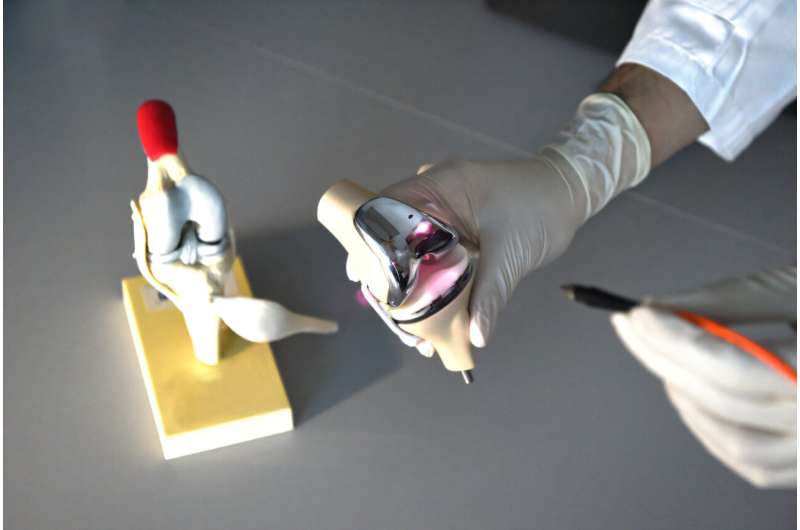The cutting-edge coating has been shown to shorten the integration time to just two weeks, doubling the speed and expediting post-operative recovery, as well as reducing the risk of rejection.
The team—led by Professor Kelvin Yeung Wai-kwok from the Department of Orthopedics and Traumatology, School of Clinical Medicine, LKS Faculty of Medicine, the University of Hong Kong (HKUMed)— is currently exploring the application of this technology in artificial joint replacement surgeries, including commonly performed knee replacement surgeries in Hong Kong.
Disorder in the osteoimmune microenvironment during the post-implantation phase can result in implant loosening, extending recovery time and increasing postoperative complications, ultimately resulting in implant failure. To address these challenges, the HKUMed team has developed a near-infrared (NIR) light-responsive implant surface that positively influences the macrophage response, effectively reducing acute inflammation during the crucial early post-implantation stage.

